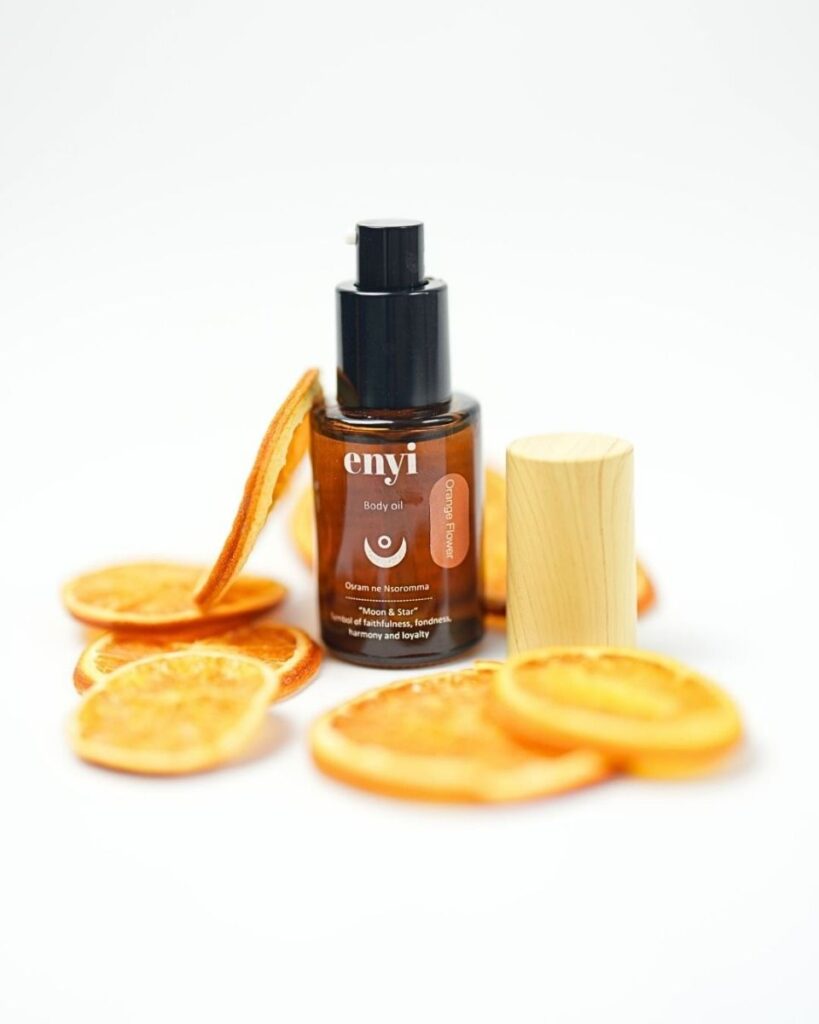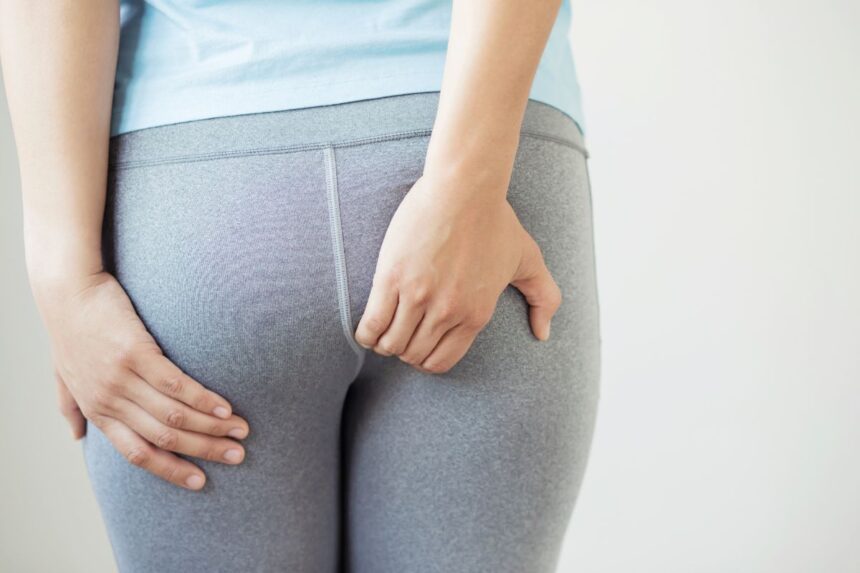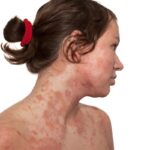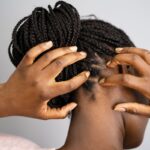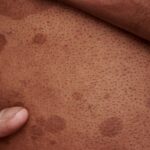Pimples on buttocks, colloquially known as butt acne, are a common skin concern that affects individuals of all ages. While the topic might cause a bit of embarrassment or discomfort to discuss openly, it’s important to acknowledge that you’re not alone in this struggle. Various factors contribute to the development of pimples in this sensitive area, including friction from tight clothing, poor hygiene, hormonal imbalances, and even diet. In this comprehensive guide, we will explore the causes of buttocks pimples, identify their symptoms, and most importantly, share 10 essential tips for treating and preventing them. With the right care and attention, achieving smoother, healthier skin on your buttocks is entirely possible. So, let’s explore and discuss the mystery of butt acne together, paving the way to clearer, more comfortable skin.
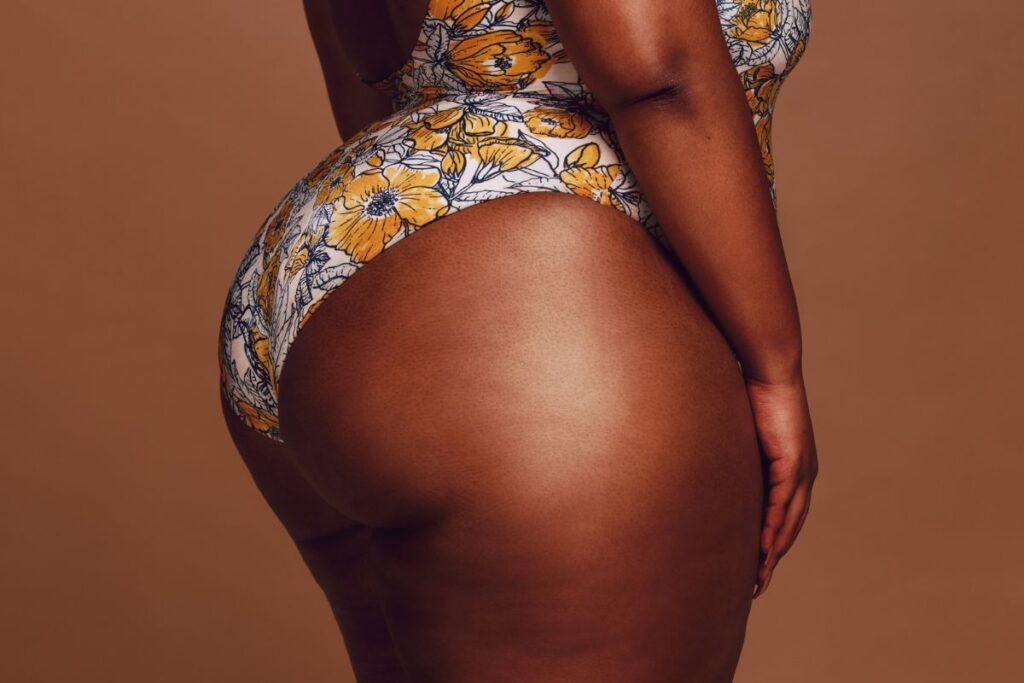
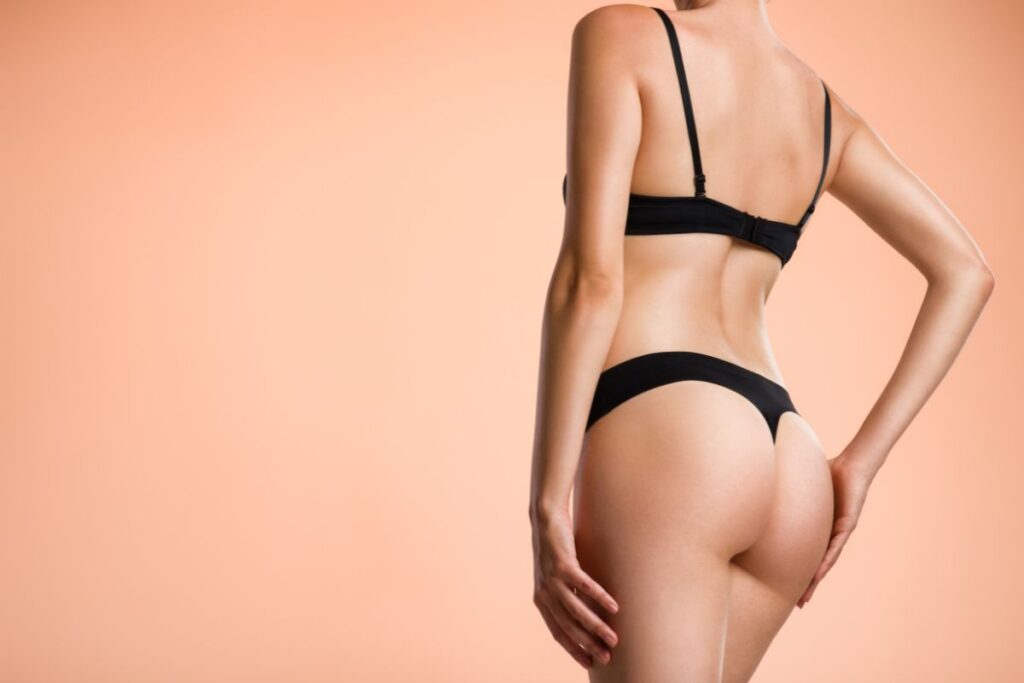
What Causes Pimples on Buttocks?
Understanding the root causes of pimples on the buttocks is crucial for effective treatment and prevention. While these blemishes can be bothersome, they’re often the result of common factors that can be managed with the right approach. Here are the primary contributors to butt acne:
- Friction from Tight Clothing: Tight, non-breathable clothing can trap sweat and bacteria against your skin, creating an ideal environment for pimples to form. This is especially true for synthetic fabrics that don’t allow the skin to breathe.
- Poor Hygiene: Neglecting proper cleansing can lead to the accumulation of dead skin cells, oils, and bacteria on the buttocks, clogging pores and resulting in breakouts.
- Sweat and Moisture: Prolonged exposure to sweat and moisture can irritate the skin and contribute to the development of pimples. This is a common issue for athletes or those living in hot, humid climates.
- Hormonal Imbalances: Fluctuations in hormones can trigger acne not just on the face but also on the body, including the buttocks. This is often linked to puberty, menstrual cycles, pregnancy, and stress.
- Diet and Lifestyle: Although the connection between diet and acne is still under research, certain foods might exacerbate skin conditions for some individuals. A diet high in processed foods, sugars, and dairy products is often cited as a potential trigger for breakouts.
Identifying the specific causes behind your butt acne is a critical step towards finding the most effective treatment. In many cases, simple lifestyle and hygiene adjustments can make a significant difference in the health and appearance of your skin.
How to Identify Butt Acne
Differentiating between pimples on the buttocks and other skin conditions is essential for effective treatment. Butt acne typically presents as red, inflamed pimples or blackheads that can be tender to the touch. However, it’s crucial to distinguish these blemishes from similar-looking conditions that may require different treatments. Here’s how to identify butt acne and when to seek further advice:
- Symptoms of Butt Acne:
- Red, pus-filled pimples or pustules
- Blackheads or whiteheads (comedones)
- Soreness or tenderness in the affected area
- Occasional itching
- Difference from Other Skin Conditions:
- Folliculitis: Often mistaken for acne, folliculitis is an inflammation of the hair follicles caused by bacterial or fungal infections. It looks like small, red bumps or white-headed pimples around hair follicles. Unlike regular acne, folliculitis may be itchier and more associated with hair-growing areas.
- Keratosis Pilaris: This condition is characterized by small, rough bumps that aren’t red or inflamed. It’s caused by the buildup of keratin in the hair follicle and is more common on the upper arms and thighs than the buttocks.
- Cysts or Boils: Larger, deeper, and more painful lumps could be cysts or boils rather than acne. These are often caused by deeper infections and may require medical treatment.
If you’re unsure whether your symptoms are due to butt acne or another condition, it’s wise to consult a dermatologist. They can provide an accurate diagnosis and recommend appropriate treatments tailored to your specific needs.
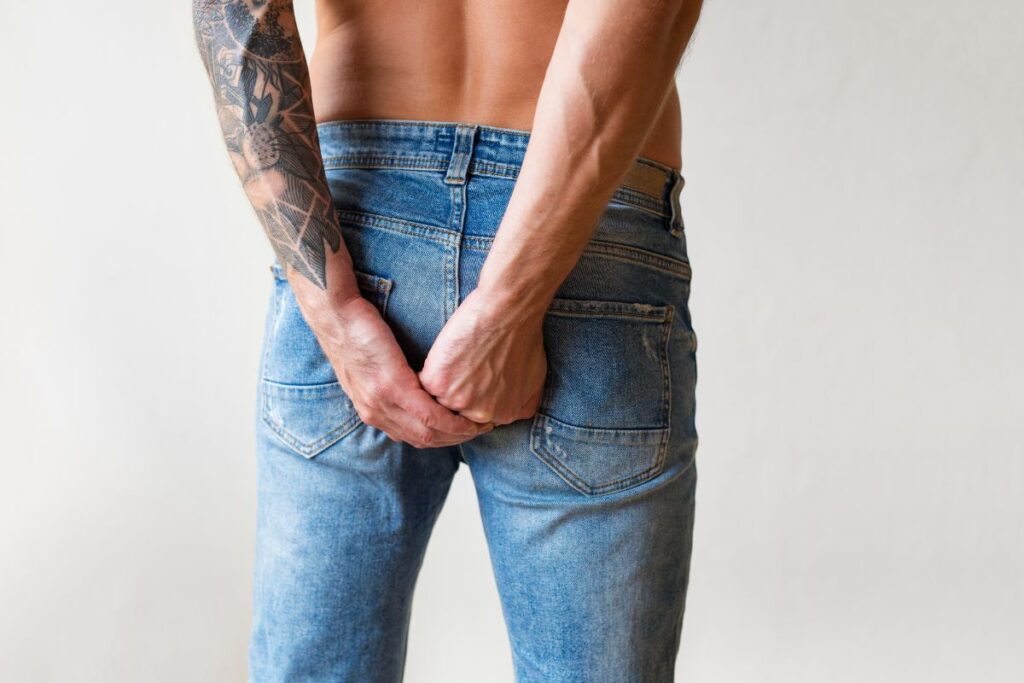
10 Tips to Get Rid of Pimples on Buttocks
Treating and preventing pimples on the buttocks can be straightforward with the right care and strategies. Here are 10 essential tips that can lead to clearer, healthier skin in this sensitive area:
1. Maintain Proper Hygiene
- Wash daily with a gentle, non-irritating soap or cleanser to remove sweat, bacteria, and dead skin cells. Avoid over-washing, which can strip the skin of its natural oils and exacerbate irritation.
2. Wear Breathable Clothing
- Choose loose-fitting clothes made of natural fibers like cotton, which allow your skin to breathe and reduce friction. Opt for seamless, tag-free underwear to minimize irritation.
3. Exfoliate Regularly But Gently
- Use a soft exfoliating mitt or a chemical exfoliant with ingredients like salicylic acid to gently remove dead skin cells and prevent clogged pores. Limit exfoliation to once or twice a week to avoid skin irritation.
4. Keep the Area Dry
- After sweating or bathing, make sure to dry the buttock area thoroughly. Consider using a gentle, absorbent powder to keep the area dry if you’re prone to sweating.
5. Adopt a Skin-Healthy Diet
- Incorporate foods rich in omega-3 fatty acids, antioxidants, and vitamins A, E, and C to support skin health. Consider reducing intake of processed foods, sugars, and dairy if you notice they trigger breakouts.
6. Use Over-The-Counter Acne Treatments
- Products containing benzoyl peroxide or salicylic acid can be effective in treating butt acne. Start with a low concentration to see how your skin reacts and apply only to the affected area.
7. Home Remedies and Natural Solutions
Natural remedies can be a gentle yet effective approach to treating butt acne. Among these, aloe vera gel, tea tree oil, witch hazel, and Moringa Oil are notable for their anti-inflammatory and antimicrobial properties, helping to soothe and heal the skin. Here’s a closer look at how to use these remedies, focusing on the benefits of moringa oil:
- Aloe Vera Gel: Known for its soothing properties, aloe vera can help calm irritated skin and reduce inflammation. Apply directly to the affected area and let it absorb for the best results.
- Tea Tree Oil: With strong antibacterial properties, tea tree oil can help combat the bacteria that cause pimples. Dilute with a carrier oil before applying to sensitive areas to avoid irritation.
- Witch Hazel: An excellent natural astringent, witch hazel can help tighten pores and dry out pimples without over-drying the skin. Use a witch hazel toner or soak a cotton pad and apply it to the area.
- Moringa Oil: Moringa oil is packed with antioxidants, vitamins, and minerals beneficial for skin health. Its anti-inflammatory and antimicrobial properties make it an excellent choice for treating pimples on the buttocks. Moringa oil can help speed up the healing process, reduce inflammation, and prevent future breakouts. Apply a few drops of moringa oil directly to the affected area or mix it with a carrier oil if you have sensitive skin. Its moisturizing benefits also help prevent dryness and promote smoother, healthier skin.
We really recommend this moringa oil. It is an effective way to soothe and treat butt acne:
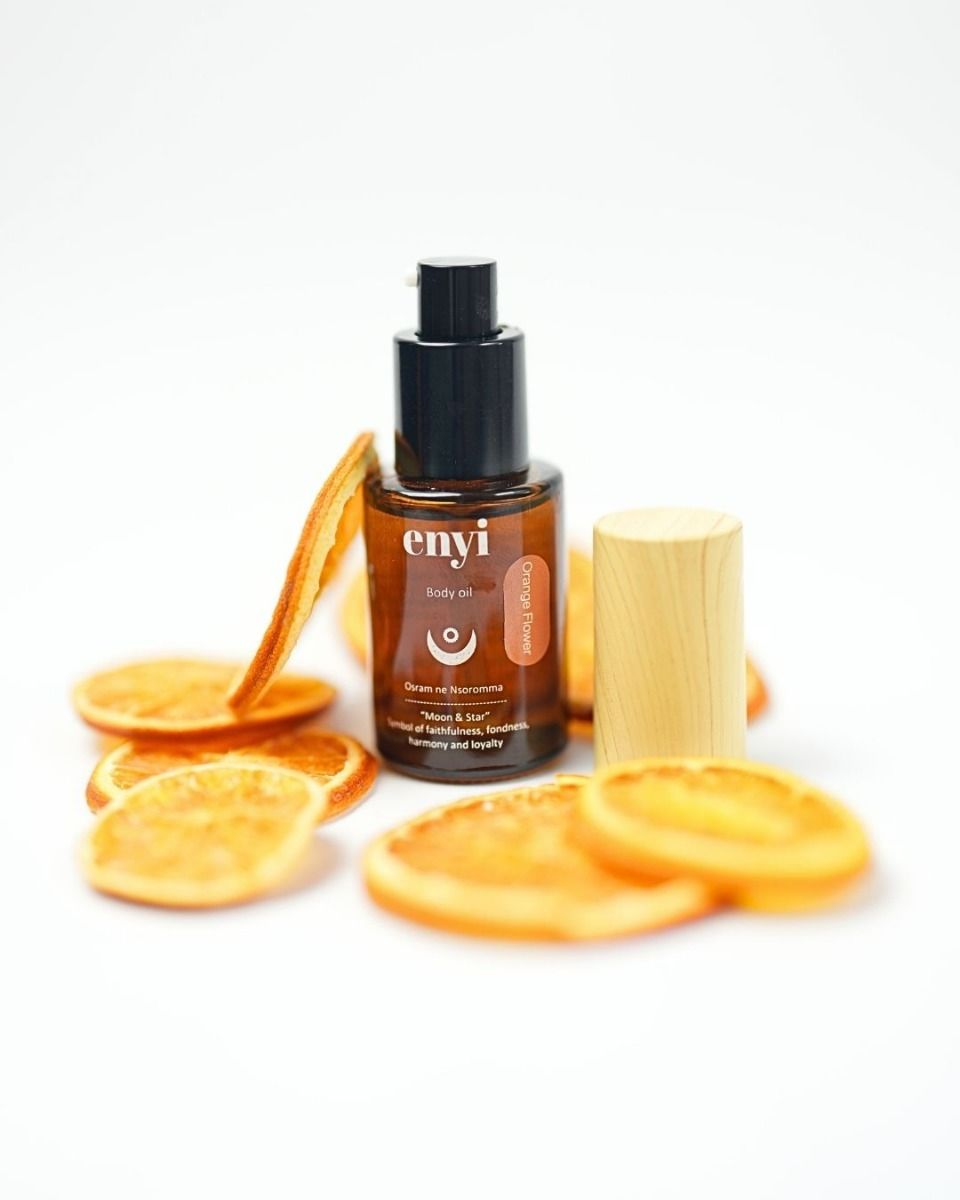
Moringa Body Oil
Skin Wellness with a Citrus Touch: Ideal for all skin types, our Orange Body Oil or Neroli Body Oil as commonly called, with Moringa is a testament to our commitment to pure, natural beauty care. It’s free from harsh chemicals and synthetic fragrances, ensuring that your skin is nourished in the most natural way.
Always patch test before applying new substances to larger areas of your skin, especially with natural remedies, to ensure you do not have an adverse reaction.
Incorporating moringa oil and other natural remedies into your skincare routine can provide a gentler alternative to chemical treatments, offering relief and healing for pimples on the buttocks while nurturing your skin with natural goodness.
8. When to See a Dermatologist
- If your butt acne persists or is severe, causing pain or distress, consult a dermatologist. They can offer prescription treatments, such as topical retinoids or antibiotics, tailored to your needs.
9. Preventative Measures to Keep Butt Acne at Bay
- Stay hydrated, maintain a balanced diet, and exercise regularly to promote overall skin health. Avoid sitting for prolonged periods, and consider using a breathable cushion if your lifestyle requires extended sitting.
10. Psychological Impact and Coping Strategies
- Understand that skin conditions can affect your self-esteem but remember you’re not alone. Seek support from friends, family, or online communities and focus on self-care practices that boost your confidence.
Implementing these tips consistently can significantly improve the condition of pimples on your buttocks, leading to smoother, more comfortable skin. Patience and persistence are key, as skin healing takes time. Start with small changes and gradually incorporate these practices into your daily routine for the best results.
FAQs
Here are answers to some frequently asked questions about pimples on the buttocks, providing further insights and tips for dealing with this common skin concern.
How do I get rid of a pimple on my butt cheek? To treat a pimple on your butt cheek, start by applying a warm compress to reduce inflammation and draw out any pus. Use an over-the-counter acne treatment containing moringa oil, benzoyl peroxide or salicylic acid, applying it directly to the affected area. Ensure you wear loose, breathable clothing to reduce friction and avoid further irritation.
How do you get rid of butt acne? Getting rid of butt acne involves a combination of good hygiene, proper skincare, and lifestyle adjustments:
- Wash the area daily with a gentle cleanser.
- Exfoliate regularly to prevent dead skin cells from clogging pores.
- Apply over-the-counter treatments with benzoyl peroxide or salicylic acid.
- Wear breathable clothing and underwear.
- Maintain a balanced diet and stay hydrated.
Can diet affect pimples on my buttocks? Yes, diet can play a role in the development of pimples on the buttocks. Foods high in sugar and dairy products may trigger acne in some individuals. Focus on a balanced diet rich in fruits, vegetables, lean proteins, and whole grains to support skin health.
How can I prevent pimples on buttocks from reoccurring? To prevent pimples on the buttocks from recurring:
- Follow a consistent skincare routine, including cleansing and exfoliating.
- Wear loose, breathable clothing and change out of sweaty clothes promptly.
- Avoid sitting for prolonged periods, and use a breathable cushion if needed.
- Incorporate a balanced diet and stay hydrated.
Are there any professional treatments for severe butt acne? Yes, for severe or persistent butt acne, a dermatologist may recommend professional treatments such as:
- Prescription topical treatments, including retinoids.
- Oral medications, such as antibiotics or hormonal treatments.
- Chemical peels or laser therapy for deep or resistant cases.
Remember, it’s essential to consult with a dermatologist before starting any new treatment, especially for severe conditions. They can provide personalized advice and treatment options suited to your specific needs.
In conclusion, while pimples on the buttocks can be a frustrating condition, there are many effective ways to treat and prevent them. By understanding the causes, adopting a proper skincare routine, and making lifestyle adjustments, you can achieve clearer, healthier skin. Remember to be patient and consistent with your skincare practices, and don’t hesitate to seek professional advice if needed.
